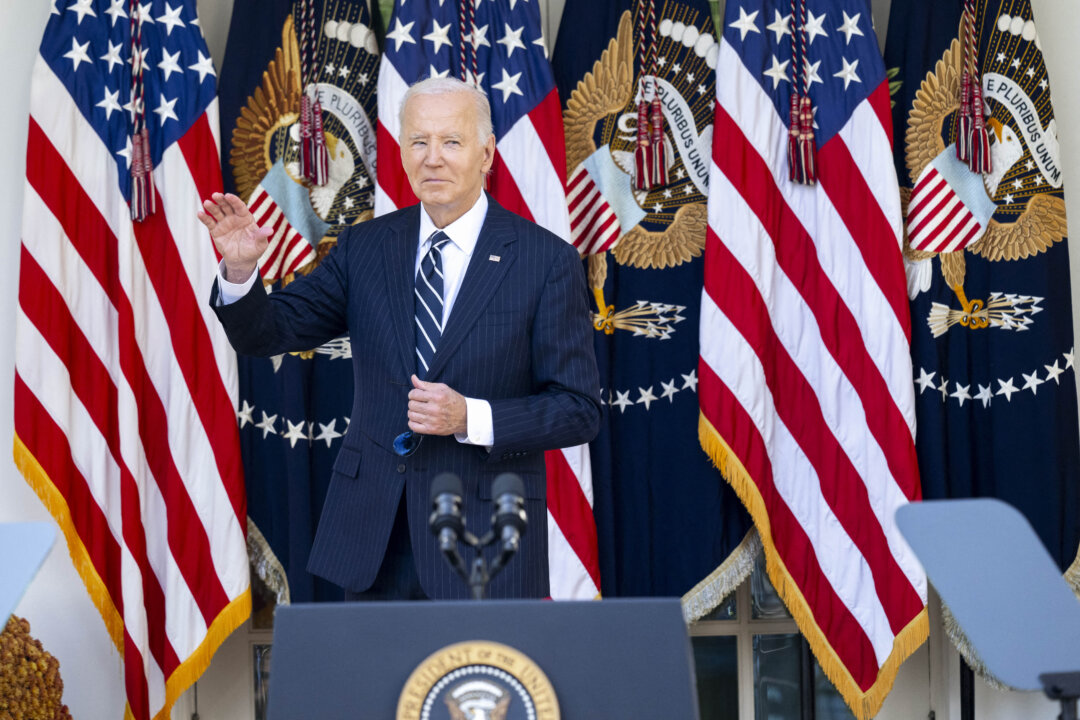The drugs, which can be effective at treating and reversing severe obesity, can cost as much as $1,000 per month without insurance.
The Biden administration proposed a rule on Nov. 26 for Medicare and Medicaid to cover anti-obesity medications that were designed to prevent the development of Type 2 diabetes.
More than 42 percent of U.S. adults and 19 percent of children struggle with obesity, which is now recognized as a chronic, life-threatening disease, according to the National Institutes of Health. Obesity can lead to diabetes, cardiovascular disease, stroke, and cancer.
The drugs—which include injectable medications such as Wegovy, Zepbound, and Ozempic—can reduce deaths and sickness from heart attacks and other cardiovascular ailments by 20 percent in overweight and obese patients with cardiovascular disease but not diabetes, according to a study in the New England Journal of Medicine.
The study included 17,604 patients ages 45 and older who had preexisting cardiovascular disease and a body-mass index of 27 or greater but no history of diabetes.
Without prescription insurance coverage, the drugs cost as much as $1,000 per month.
Medicare and Medicaid currently cover these medications only for certain conditions, such as diabetes.
President Joe Biden’s plan would expand access so the drugs are covered for obesity as well, making them available to another 3.4 million Americans with access to Medicare.
The health plan would potentially reduce out-of-pocket expenses for these drugs by as much as 95 percent for certain enrollees. About 4 million adults on Medicaid would also gain access to these medications.
“This proposal would allow Americans and their doctors to determine the best path forward so they can lead healthier lives, without worrying about their ability to cover these drugs out-of-pocket, and ultimately reduce health care costs to our nation,” the White House fact sheet states.
An analysis from the U.S. Department of Health and Human Services found that international prices for these anti-obesity drugs are already much lower than list prices found in the United States.
About 6 percent of U.S. adults, or an estimated 15.5 million people, have reported using injectable anti-obesity drugs such as Ozempic or Wegovy to reduce weight, according to Gallup. The usage rate is higher among women, among those with health insurance, and among Americans ages 40 to 64.
The new rule proposal continues Biden’s efforts to expand access to Medicare, Medicaid, and the Affordable Care Act since he took office in 2021. Through the Inflation Reduction Act, the president gained the ability to negotiate down the price of certain drugs covered by Medicare, including setting $35 monthly caps on insulin.
The Department of Health and Human Services also reached an agreement with drug manufacturers of 10 key medications earlier this year, lowering prices by between 38 percent and 79 percent starting in 2026.
The Biden administration also introduced its National Strategy on Hunger, Nutrition, and Health, which targets ending hunger and lowering diet-related diseases such as obesity. The strategy recognizes obesity as a “multi-faceted disease” that needs multiple approaches, including access to nutritious foods and obesity counseling, to keep vulnerable Americans from becoming obese.

